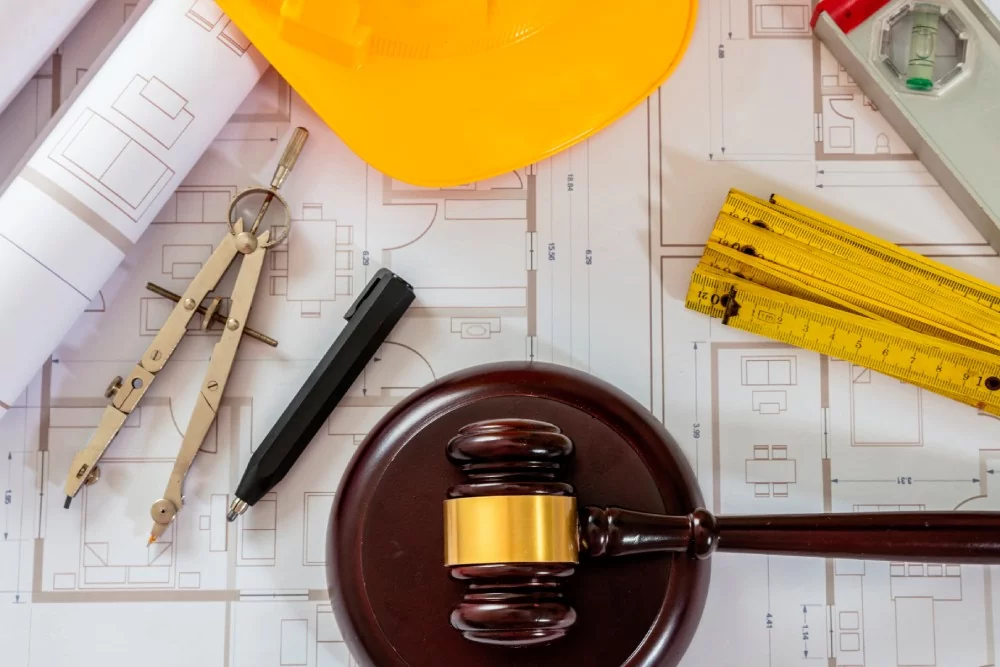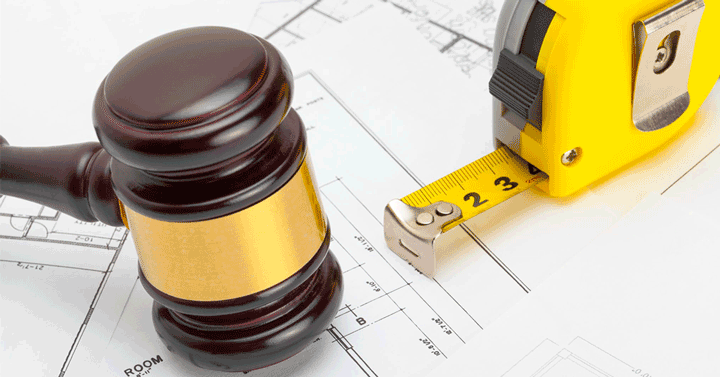In the complex world of building and construction, legal pitfalls can arise at any stage of a project. Whether you are a contractor, developer, or property owner, understanding the legal landscape is crucial. Engaging a specialised building and construction law firm can be the key to navigating these challenges effectively. This article explores the various ways in which such a firm can assist in avoiding potential legal issues.
The Importance of Legal Expertise in Construction
The construction industry is governed by a myriad of laws, regulations, and standards. From contract negotiations to compliance with safety regulations, the legal framework is intricate and often overwhelming. This is where the expertise of a building and Sydney construction law firm becomes invaluable.
Understanding Contracts
Contracts form the backbone of any construction project. They outline the responsibilities, rights, and obligations of all parties involved. A building and construction law firm can help draft, review, and negotiate contracts to ensure that they are fair and comprehensive.
Without proper legal guidance, parties may inadvertently agree to unfavourable terms, which can lead to disputes down the line. A well-structured contract can mitigate risks and provide clarity, ensuring that all parties are on the same page from the outset. Furthermore, legal experts can incorporate specific clauses that address potential issues such as delays, changes in scope, and payment schedules. This foresight can save time and money, allowing projects to progress smoothly and efficiently.
Compliance with Regulations
Construction projects must comply with various local, state, and federal regulations. These can include zoning laws, safety standards, and environmental regulations. A building and construction law firm can provide guidance on these legal requirements, helping to ensure that projects are compliant from the beginning.
Failure to adhere to regulations can result in costly fines, project delays, or even legal action. By consulting with a legal expert, stakeholders can avoid these pitfalls and focus on the successful completion of their projects. Additionally, legal professionals can assist in navigating the often complex process of obtaining necessary permits and approvals, which can vary significantly depending on the location and nature of the construction. This proactive approach not only streamlines the project timeline but also fosters a positive relationship with regulatory bodies, which can be beneficial for future developments.
Dispute Resolution and Litigation
Disputes are an unfortunate reality in the construction industry. They can arise over contract breaches, delays, or quality of work. Engaging a building and construction law firm can provide the necessary support to resolve these disputes efficiently and effectively.
Alternative Dispute Resolution (ADR)
Many construction disputes can be resolved through Alternative Dispute Resolution methods, such as mediation or arbitration. These methods are often faster and less costly than traditional litigation. A law firm with expertise in construction can guide clients through the ADR process, ensuring that their interests are protected.
By opting for ADR, parties can maintain control over the resolution process, which can lead to more satisfactory outcomes. Legal professionals can facilitate negotiations and help reach a mutually beneficial agreement. Furthermore, ADR processes often allow for more creative solutions tailored to the specific needs of the parties involved, which can be particularly advantageous in the construction sector where relationships and ongoing collaborations are key. The informal setting of mediation, for instance, can foster open communication, helping to preserve working relationships that might otherwise be strained by adversarial proceedings.
Litigation Support
In cases where disputes cannot be resolved through ADR, litigation may become necessary. A building and construction law firm can represent clients in court, providing expert legal counsel throughout the process. This includes preparing legal documents, gathering evidence, and presenting a strong case.
Having a knowledgeable legal team can significantly increase the chances of a favourable outcome. They can navigate the complexities of the court system and advocate for the client’s best interests. Moreover, litigation can often uncover critical information that may not have been disclosed during negotiations, potentially shifting the balance in favour of the client. The legal team can also leverage their experience to anticipate the strategies of opposing counsel, allowing them to prepare counterarguments and evidence that bolster their case. This proactive approach is essential in ensuring that all angles are covered, and every opportunity for a successful resolution is explored.
Risk Management Strategies
Proactive risk management is essential in the construction industry. A building and construction law firm can help identify potential legal risks before they become significant issues. By implementing effective risk management strategies, stakeholders can safeguard their investments and ensure project success.
Conducting Risk Assessments
One of the first steps in risk management is conducting a thorough risk assessment. This involves identifying potential legal pitfalls and evaluating their impact on the project. A legal firm can assist in this process by providing insights into common risks associated with construction projects.
By understanding these risks, stakeholders can make informed decisions and take necessary precautions to mitigate them. This proactive approach can save time, money, and stress in the long run. Furthermore, regular risk assessments can help in adapting to changing circumstances, such as shifts in regulations or market conditions, ensuring that stakeholders remain vigilant and prepared for any eventualities that may arise. Engaging with experts who have a deep understanding of the construction landscape can provide invaluable insights that may not be immediately obvious to those within the industry.
Developing Contingency Plans
In addition to identifying risks, a building and construction law firm can help develop contingency plans. These plans outline the steps to be taken in the event of a legal issue arising. Having a well-thought-out contingency plan can minimise disruptions and ensure that projects stay on track.

By preparing for potential challenges, stakeholders can respond swiftly and effectively, reducing the likelihood of costly delays or disputes. Moreover, contingency plans can also include communication strategies to keep all parties informed during a crisis, which is crucial in maintaining trust and collaboration among stakeholders. This proactive communication can help to alleviate concerns and foster a sense of unity, even in the face of difficulties. Additionally, training sessions for staff on how to implement these plans can further enhance readiness, ensuring that everyone involved is equipped to handle unexpected situations with confidence and efficiency. Learn more about building lawyers Sydney: resolving disputes quickly and efficiently.
Legal Advice for Project Financing
Securing financing for construction projects often involves complex legal considerations. A building and construction law firm can provide essential legal advice throughout the financing process, ensuring that all agreements are sound and compliant with relevant laws. This legal support is crucial not only for large-scale developments but also for smaller projects, where the intricacies of financing can often be overlooked. By engaging with legal professionals, clients can navigate the multifaceted landscape of project financing with greater confidence and clarity.
Navigating Loan Agreements
Loan agreements are a critical component of project financing. These documents outline the terms and conditions of the loan, including repayment schedules and interest rates. A legal firm can review these agreements to ensure they are fair and protect the client’s interests. Furthermore, they can assist in negotiating terms that are more favourable, potentially saving clients significant sums over the life of the loan. This proactive approach can also mitigate risks associated with default or unexpected financial burdens.
By having legal experts involved in the financing process, stakeholders can avoid potential pitfalls that could jeopardise their projects. This can lead to more favourable financing terms and a smoother project execution. Additionally, legal counsel can provide insights into the implications of various financing structures, such as equity financing versus debt financing, allowing clients to make informed decisions that align with their long-term goals.
Understanding Insurance Requirements
Insurance is another vital aspect of construction financing. Various types of insurance, such as liability and workers’ compensation, are often required to protect against unforeseen events. A building and construction law firm can advise clients on the necessary insurance coverage and help ensure compliance with legal requirements. This guidance is particularly important in a sector where the stakes are high, and the consequences of inadequate insurance can be severe, including costly litigation or project delays.
Having the right insurance in place can safeguard against financial losses and provide peace of mind throughout the construction process. Moreover, legal professionals can assist in navigating the often-complex landscape of insurance claims, ensuring that clients understand their rights and obligations under their policies. This comprehensive approach not only protects the financial investment but also fosters a culture of safety and responsibility on site, which is essential for maintaining a positive reputation in the construction industry.
Construction Claims Management
Construction claims can arise from various issues, including delays, defects, or changes in project scope. Managing these claims effectively is crucial to minimising their impact on the project. A building and construction law firm can provide guidance on how to handle claims and protect stakeholders’ rights.
Preparing and Submitting Claims
When a claim arises, it is essential to document the issue thoroughly and submit the claim in a timely manner. A legal firm can assist in preparing and submitting claims, ensuring that all necessary information is included and that deadlines are met.
Properly managed claims can lead to quicker resolutions and reduce the likelihood of disputes escalating into legal battles.
Negotiating Settlements
In many cases, claims can be resolved through negotiation rather than litigation. A building and construction law firm can represent clients in these negotiations, advocating for fair settlements that reflect the true impact of the claim.
Having experienced legal professionals involved in the negotiation process can lead to more favourable outcomes and help maintain positive relationships among project stakeholders.

Conclusion
In the dynamic and often unpredictable world of building and construction, legal pitfalls can be costly and disruptive. Engaging a specialised building and construction law firm can provide invaluable support in navigating this complex landscape. From contract negotiation and compliance to dispute resolution and risk management, legal experts can help stakeholders avoid potential pitfalls and ensure the successful completion of their projects.
By investing in legal expertise, contractors, developers, and property owners can safeguard their interests and focus on what they do best—building and creating. In an industry where the stakes are high, having a trusted legal partner can make all the difference.





